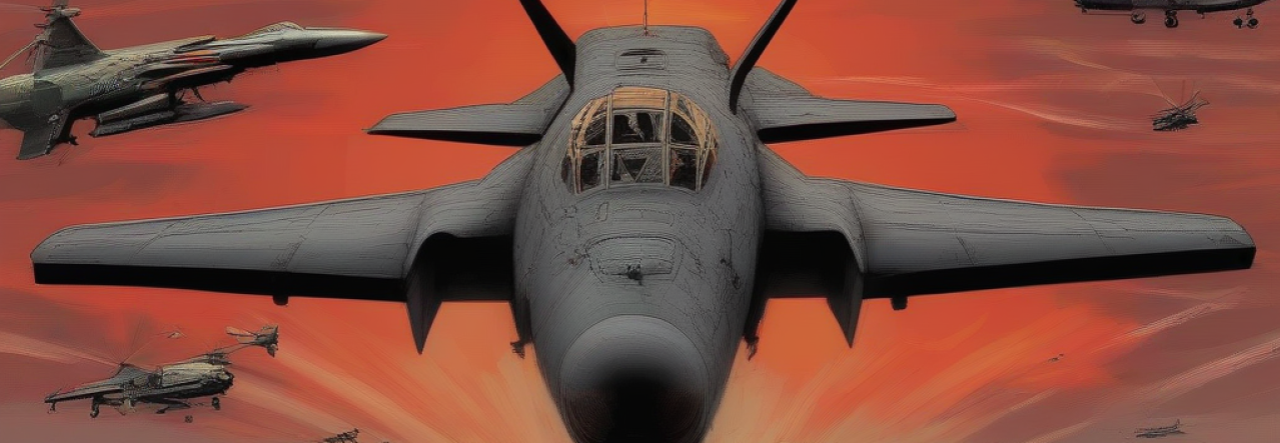The Anglo American Nazi War: Part 2
The first installment of The Anglo American Nazi War, published as Festung Europa, has been reviewed on this blog before. Because the postwar part is A: different, B: worse, and C: deliberately not included in the published version, I figured it deserved a separate review.
The wartime portion can fit, slightly awkwardly, into a certain form of pseudo-historical fiction. For fans of conventional World War IIIs, it can be compared somewhat to Hackett and The War That Never Was. It’s a description of a conflict that didn’t happen written in the style of recounting one that did. There is thus a tiny connection to fiction in general, albeit with the thread leading to another very small niche. It also fits into “AH as a genre.”
The postwar installment lacks even that connection. It’s a pure example of internet alternate history, and one of the big problems I’ve had when trying to review is that internet AH is an extremely insulated subculture that lacks almost any tie to normal literary storytelling. How can you critique the characters if there are none? I’ve had to strain to explain it, with the best I can give being “The outline of a de facto fanfic that uses ‘history’ as its setting”. If that sounds unusual and bizarre, it is.
Internet AH has a reputation for its installments being extremely short, something that actually sets it apart from other serialized web-fics that have a deserved reputation for often leaving War and Peace and Atlas Shrugged in their dust where length is concerned. The more substantive wartime portion takes up over 86% of the words written in the story. What’s left is a series of short infodumps.
Here’s what happens. In an utterly ruined Eurasia, everything from the Channel-bordering regions of France returning to British semi-rule as crown dependencies to the US annexing the Russian Far East as “Western Alaska”, with it later becoming a state, occurs. There’s both a “Russia” and a “Soviet Union.” The remnants of Germany are divided into many Morgenthau Plan-style restricted microstates. All this is told in blocks of exposition that somehow feel even flatter than the wartime ones. Which is a shame because there’s both comparison to another alternate history (in this specific case) and a huge amount of lost potential.
The world that develops is one where the US builds lots of superweapons the author clearly likes, adopts a full-on might makes right policy, has the path cleared for cakewalks despite its historical postwar advantages and lack of historical rivals, and uses them frequently against totally ineffectual opponents who exist purely to serve as live-fire targets. This is very much like The Big One, except it lacks the utter audacity and, in something you’d never have hear me say earlier, literary skill of that series.
Instead of using the power of Mary Sue project management to get the superweapons into service without breaking the bank, postwar AANW just has the US continue to run what amounts to a total war economy, falling victim to the “nine women can have a baby in a month” fallacy of funding always equaling results. Instead of having immortal manipulators with catlike eyes provide unrealistic policy continuity, postwar AANW just has a lazy unshakeable consensus emerge. Even after the US destroys several German cities with space weapons after their uprising had been conventionally suppressed, the result is not a “you kicked them when they were down” backlash similar to the real one (however fair or not) over the atomic bombings of Japan, but rather the even more hawkish party gaining support.
What should be an audacious, massive divergence that could easily serve as the foundation for a distinctive work instead is summarized in only around two dozen pages worth of actual text. This is a shame because the premise of a superweapon-obsessed US that never truly left the wartime era (and its ugliness and excesses) behind could make for a great “AH as a setting” story. It could be a highbrow book about generational change, with the upheaval making the historical 1960s look tame. It could be a thriller as the nation with a bazooka suddenly faces problems requiring daggers.
Instead it’s just the outline of an even more biased late Tom Clancy novel mixed with map trinkets. Instead of being made into a potentially tasty meal, the ingredients were just placed in a bowl and left there, next to other bowls full of uncooked flour, eggs, and spices.
